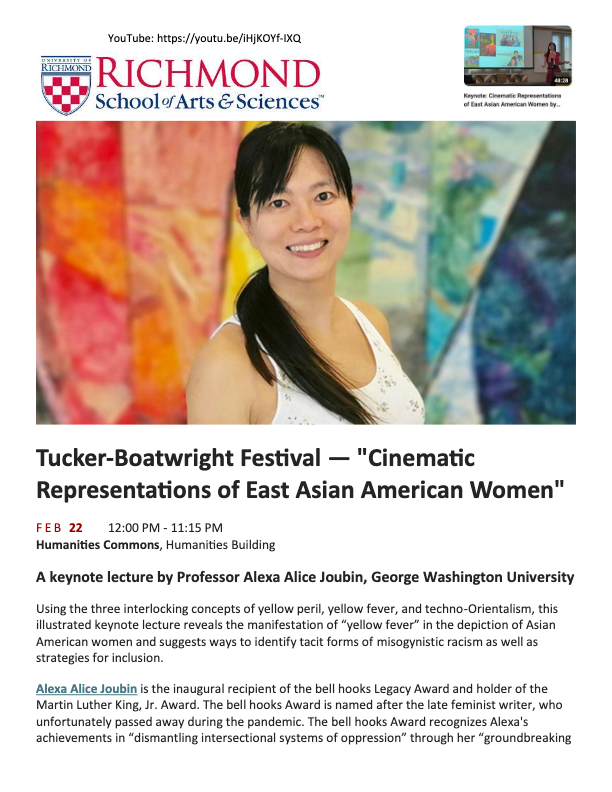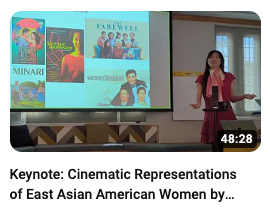Cinematic Representations of East Asian American Women
Tucker-Boatwright Festival and Symposium: Hollywood & the Asian American Imagination, Richmond, February 23, 2024 ::: YouTube
What are the patterns in Hollywood representations of East Asian American women from romantic comedy to science fiction films? How do racism and sexism intersect in these patterns?
Depictions of East Asian women which are full of positive and negative stereotypes. These images are often framed by metaphors of kinship. Imaginations of kinship on screen include Lee Isaac Chung’s Minari, John Chu’s Crazy Rich Asians, Lulu Wang’s The Farewell, Ang Lee’s The Wedding Banquet, and Mina Shum’s Double Happiness starring Sandra Oh. These films frame kinship as oppressive relations that could potentially be emancipating in the right context.
Joubin argues that kinship goes beyond blood relations to include affective structures, material relations. It is a narrative structure to bring characters together. In other words, kinship is not an entity but a dynamic relation. It organized social life and our position in the world.
In Alex Garland’s Ex Machina, metaphorical kinship informs the relationships among the otherwise unrelated characters. The 2014 sci-fi film is set in a remote and isolated house that serves as a research lab. This is where a white male inventor named Nathan creates a series of humanoids with artificial intelligence and human emotions. He is by default the father and God figure in this futuristic household.
Using the three interlocking concepts of yellow peril, yellow fever, and techno-Orientalism, Alexa Alice Joubin’s illustrated keynote lecture revealed the manifestation of racist misogyny. She also suggested ways to identify tacit forms of misogynistic racism as well as strategies for inclusion.

